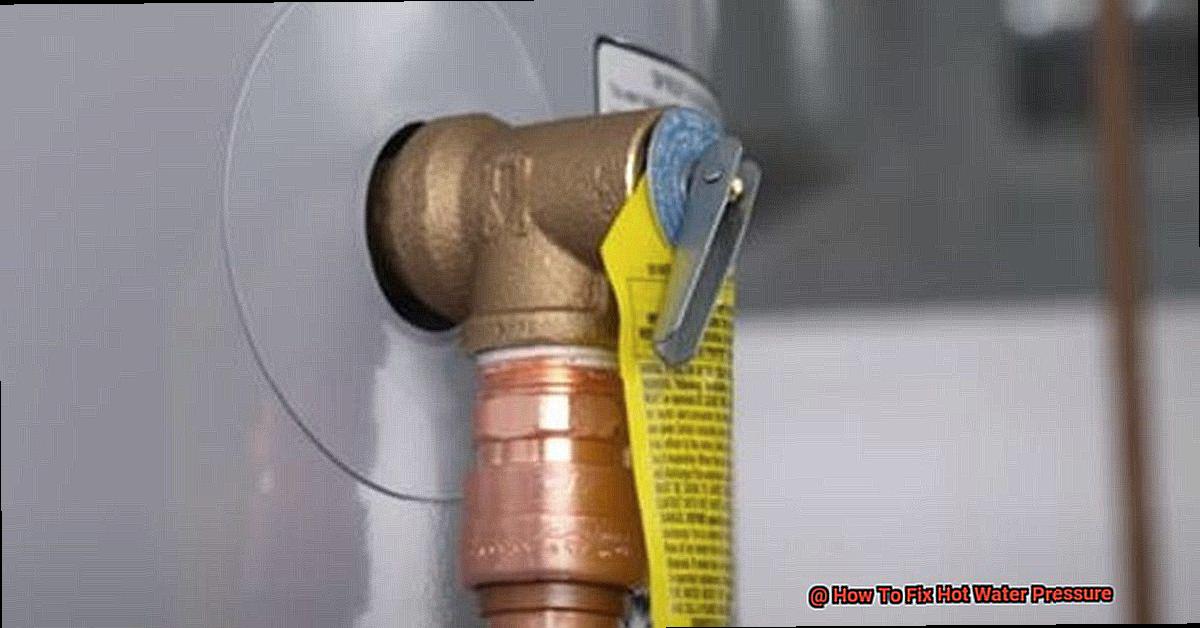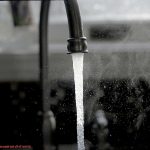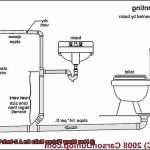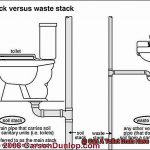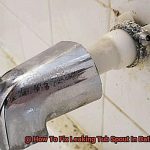Are you tired of shivering in a lukewarm shower because your hot water pressure is weaker than a kitten’s purr? Or maybe you’re frustrated with waiting an eternity for your washing machine or dishwasher to fill up with hot water. Whatever the case may be, low hot water pressure can be a major annoyance in any household.
But fear not. In this post, we’re going to dive into some common causes of low hot water pressure and provide practical solutions to help you fix the issue. From quick and easy DIY fixes to more complex plumbing solutions, we’ve got you covered.
We’ll start by discussing the importance of checking your water heater’s temperature settings and ensuring that it’s properly sized for your household’s needs. After all, if your water heater is too small or set at too low of a temperature, it can seriously impact your hot water pressure.
Next up, we’ll explore how clogged pipes, sediment buildup, and old or faulty valves can also wreak havoc on your hot water flow. But don’t worry – we’ll show you exactly what you need to do to get those pipes flowing freely again.
So, let’s find more.
Contents
How To Fix Hot Water Pressure
Step 1: Check the Water Shut-Off Valve
Before calling a professional plumber, let’s take a few DIY steps to fix the problem. First things first, let’s check the water shut-off valve leading to your hot water heater.
The shut-off valve is located near your water meter or main supply line and regulates the flow of water into your home. If it’s partially closed, it can restrict the flow of hot water and cause low pressure. To check the valve, locate it and make sure it’s fully open. If the valve appears to be open but the water pressure is still low, try closing and then opening it again to see if that helps.
Next, don’t forget to check any other valves that may be affecting your water pressure, like individual shut-off valves for specific fixtures or appliances. Make sure these valves are also fully open.
If checking the shut-off valve doesn’t resolve the issue, there might be other underlying problems such as clogged pipes or a malfunctioning water heater. In these cases, don’t hesitate to call in a professional plumber for further assistance.
Step 2: Inspect the Pressure Relief Valve
One of the most important steps in remedying this problem is inspecting the pressure relief valve on your water heater. The pressure relief valve is responsible for releasing any excess pressure that builds up inside the tank, thus preventing damage to the system. However, if this critical valve is faulty or stuck, it can lead to a decrease in hot water pressure.
To inspect the pressure relief valve, first, turn off the power supply to your water heater and shut off the cold water supply valve. Next, locate the valve on top of your tank and clear away any debris or dirt surrounding it.
Once that’s done, carefully lift the valve lever halfway and then release it. If you hear a gurgling sound or see water coming out of the valve, it’s a good indication that everything is working correctly. However, if there is no sound or water coming out of the valve, it could mean that it’s faulty.
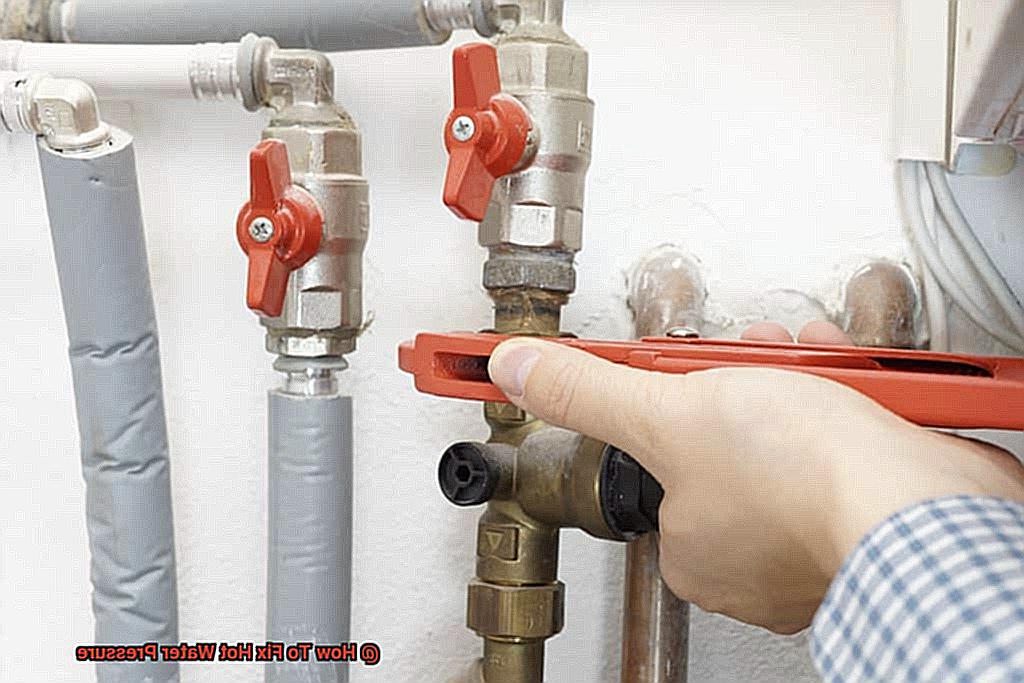
It’s important to note that if you suspect a faulty pressure relief valve, it’s best to call in a professional plumber immediately. Attempting to replace a faulty valve can be hazardous and may cause further damage to your system.
Additionally, keep in mind that some water heaters have more than one pressure relief valve. Therefore, check all valves if you’re experiencing hot water pressure issues.
By regularly inspecting your pressure relief valve, you’ll be taking an important step towards a steady stream of hot water once again. Don’t hesitate to call in a professional plumber if you’re unsure or uncomfortable with performing this task yourself.
Step 3: Clear Clogs in Pipes or Aerators
Say goodbye to this frustrating problem with step 3 – clearing clogs in pipes or aerators. Clogs can occur due to mineral buildup or debris accumulation, which restricts water flow and leads to low pressure.
First, shut off the main water supply and open all faucets to drain any remaining water. Inspect the pipes for visible clogs or debris, and use a plunger or drain snake to remove them. For more stubborn clogs, a chemical drain cleaner can do the trick. However, be sure to follow the instructions carefully and wear protective gloves and goggles while using them.
Aerators play an important role in regulating water flow and reducing splashing. Yet, over time they can become clogged with mineral buildup or debris, leading to low water pressure. Cleaning an aerator is easy – remove it from the faucet and soak it in vinegar or a descaling solution for a few hours. After soaking, rinse it with warm water and reattach it to the faucet.
Clearing clogs in pipes or aerators can greatly improve hot water pressure. But, if these steps do not work, don’t hesitate to call a professional plumber. They can diagnose and repair any underlying plumbing issues that may be the root cause of your low pressure.
Step 4: Consider Professional Plumbing Assistance
While some DIY remedies can be effective, certain issues require professional plumbing assistance. This is especially true when the problem is more complex than it initially appears.
Professional plumbers have the necessary experience and knowledge to diagnose the root cause of your hot water pressure problem. They can offer guidance on the best solution tailored to your specific needs and budget. Additionally, they can ensure that any repairs or replacements are done correctly and safely, giving you peace of mind and preventing any further damage or issues down the line.
When searching for a professional plumber, it’s essential to do your research and choose someone who is licensed, insured, and has excellent reviews from previous customers. Obtaining multiple quotes before making a decision can also help ensure you’re getting a fair price for the services provided.
While some hot water pressure issues can be resolved with DIY fixes, it’s crucial to know when to call in a professional for assistance.
With their expertise and knowledge, they can help guarantee that your hot water pressure issue will be resolved quickly, efficiently, and safely.
Benefits of Professional Plumbing Assistance
It can be a frustrating and inconvenient problem, especially when it disrupts your daily routine. While some quick fixes may seem tempting, it’s important to recognize when it’s time to bring in the professionals. Here are some of the benefits of hiring a professional plumber for hot water pressure issues:
Firstly, professional plumbers have years of experience and training, which makes them experts in their field. They can quickly diagnose the issue and provide an effective solution. You can trust that they have the knowledge and expertise to get the job done right.
Secondly, plumbers use specialized tools that are not readily available to homeowners. These tools enable them to complete the job more efficiently and effectively. By using these tools, they can save you both time and money.
Thirdly, while attempting to fix the hot water pressure issue yourself may seem like a good idea, it can actually end up costing you more time and money in the long run. A professional plumber can quickly identify and fix the issue, saving you time and money on future repairs.
Additionally, fixing plumbing issues can be dangerous, especially if you don’t have the proper training or tools. A professional plumber has the necessary safety equipment and training to ensure that the job is done safely. By leaving it to the professionals, you can avoid any potential accidents or injuries.
Lastly, when you hire a professional plumber, you can be sure that the work will be done right the first time. Most plumbers offer a guarantee on their work, which means that if there are any issues after the repair, they will come back and fix it at no additional cost. This gives you peace of mind knowing that you won’t have to deal with the same issue again.
Overall, hiring a professional plumber for hot water pressure issues is a wise investment. They have the experience, expertise, tools, and safety equipment to get the job done quickly and effectively. Not only will this save you time and money, but it will also give you peace of mind knowing that the job was done right.
YZDDJhtn7iQ” >
Conclusion
In conclusion, low hot water pressure can be a downright annoying problem for any household. Fortunately, there are several practical solutions to fix the issue without breaking the bank. By following some basic troubleshooting techniques, homeowners can save both time and money by fixing hot water pressure issues on their own.
Checking the water shut-off valve is a great first step in identifying the problem. If that doesn’t work, inspecting the pressure relief valve or clearing clogs in pipes or aerators may do the trick. These DIY fixes are simple yet effective and can greatly improve hot water pressure.
However, if these steps fail to solve the issue, it’s crucial to call in a professional plumber who has the necessary experience, expertise, tools, and safety equipment to diagnose and repair any underlying plumbing issues. Hiring a professional plumber is not only a wise investment but also offers peace of mind knowing that the job was done right.
A skilled plumber can quickly identify and fix the issue, saving you time and money on future repairs. Plus, they offer guarantees on their work which further ensures that your home’s plumbing system is in good hands.

